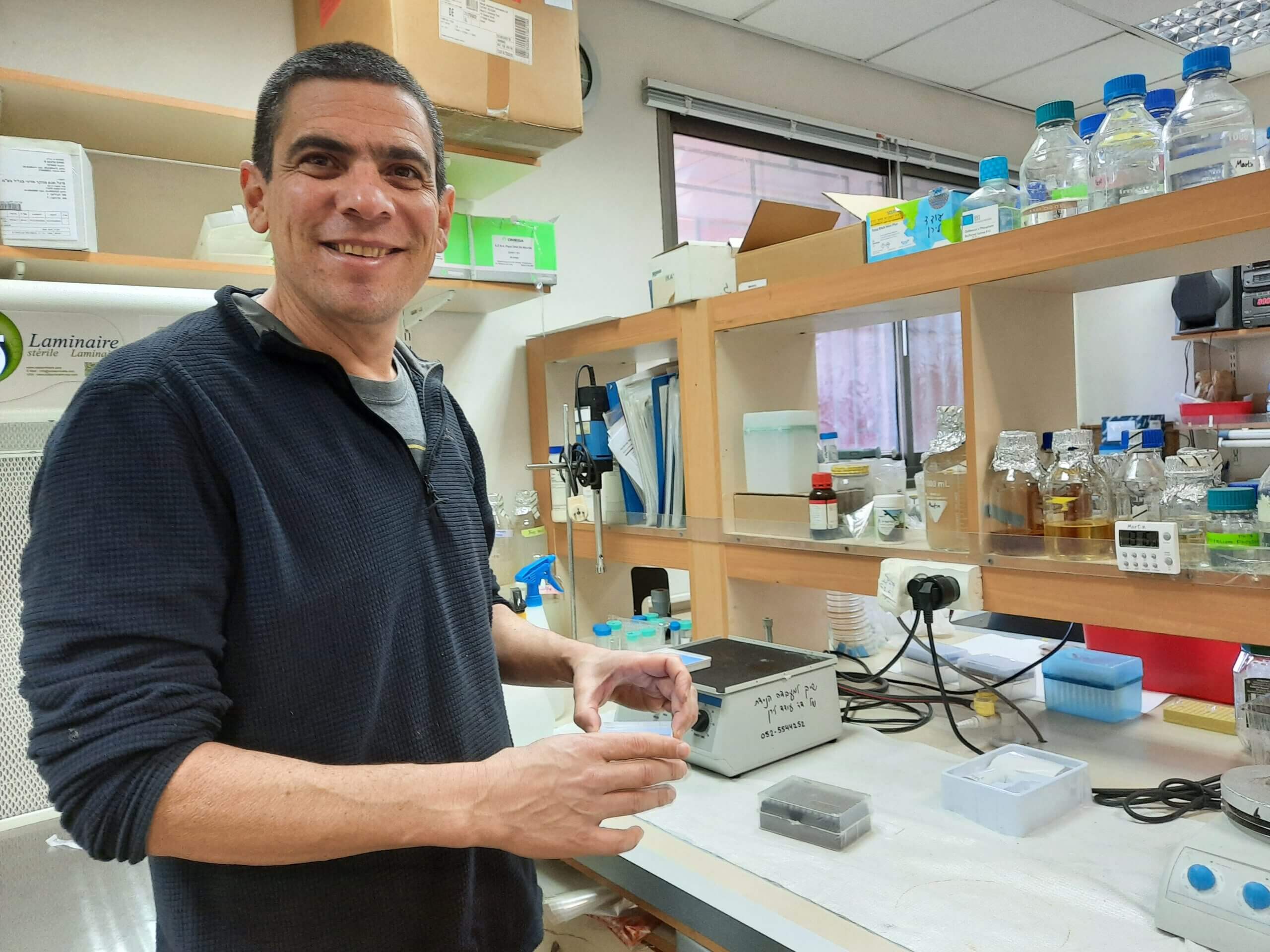Dr. Itamar Yadid from the Laboratory for Researching Metabolic Pathways and Protein Evolution at the Miguel Research Institute, is working on his research on green protein production for the environment, amino acid-methionine production, and dietary fiber as food for bacteria

Dr. Itamar Yadid from the laboratory for the study of metabolic pathways and evolution of proteins at the Miguel Research Institute, is working on his research on the production of green proteins for the environment, the production of amino acid-methionine, and dietary fiber as food for bacteria.
Dr. Yadid, the partner in vaccine research against the corona virus, recently won three research grants; For the production of dietary fiber using enzymes (proteins), developed in the laboratory, for the production of amino acid - methionine, and the characterization of the proteins thanks to which a bacterium is able to produce the molecule, with the aim of developing medicines and food supplements from nature.
Spotlight on proteins
In the laboratory for the study of metabolic pathways and protein evolution, Dr. Yadid traces the behavior of proteins in order to understand how proteins develop, and how new properties are acquired. Dr. Yadid
Leads efficient and specific processes, based on proteins, that can be applied in the food and pharmaceutical industries.
The proteins are actually 'small machines', which carry out all the actions that take place in the human body. Thus the proteins determine the properties of the living organism. The proteins can be described as long chains consisting of "20 letters" (borrowed), from which "words" can be written, i.e. combinations and possibilities. In each protein, there are almost the same letters, only the order and quantity vary from one protein to another. In the laboratory, they investigate how the particular arrangement and composition of "letters" in a certain protein causes some kind of action."
By understanding the laws according to which proteins work, the researchers in the laboratory develop "green" processes, which are cheap, environmentally friendly and therefore worthwhile in all respects, instead of the existing chemical processes, which harm the environment.
Dietary fiber as food for bacteria
In the laboratory for the study of metabolic pathways and protein evolution, they study how the metabolic pathways develop in bacteria. According to Dr. Yadid: "There is great importance for bacteria in the world. They are found in large quantities everywhere, and can perform many actions that we, humans and other animals, are not capable of, such as breaking down and producing different substances.'
The human digestive system is not able to break down and digest dietary fibers that are used as food for the bacteria that live in the large intestine. The unbalanced diet that Western society consumes is poor in fiber and does not provide enough food for bacteria. Healthy and diverse bacterial populations are of great importance and their contribution, among other things, in the absorption of minerals, the production of vitamins, and in maintaining a constant dialogue with the immune system, in order to keep it balanced. The enzymes developed in the laboratory are able to produce complex chains of sugars (dietary fibers) from simple sugars. The enzyme-based process will increase fiber availability and diversity. Recently, Dr. Yadid won a research grant of NIS 440 from the Innovation Authority, and was registered as a patent, which led to a relationship with large food companies, with the aim of continuing the research and development processes of the production of dietary fiber using enzymes (proteins) developed in the laboratory.
Another research grant totaling one million shekels was recently received from the Ministry of Agriculture. The research is being carried out with Prof. Rachel Amir and Iti Bloch from Miguel, and Dr. Mein Gal from Tel Aviv University, for the purpose of producing an amino acid - methionine, which is found in foods and plants in very small quantities, and the research deals with efficient ways to produce the amino acid, as a food additive for animals and people, who do not get a sufficient amount of methionine from the food they consume. Most animals do not know how to produce this acid on their own (an essential amino acid), and its importance is that it is one of the "20 letters" found in protein, which helps build all the proteins in the body of the living organism.
In another study taking place in the laboratory led by Dr. Yadid at the Miguel Research Institute, the researchers are characterizing a bacterium that produces a unique molecule. The research focuses on the characterization of the proteins thanks to which the bacterium is able to produce the molecule. This characterization and finding the unique metabolic pathway has the potential to contribute on many levels, in the basic understanding of how microorganisms produce complex molecules, and in the application of the research results, with the aim of developing medicines from natural substances.
In addition to the research conducted in the laboratory, Dr. Yadid participates in the research conducted at the Miguel Research Institute for the development of a vaccine against the corona virus.
More of the topic in Hayadan:

2 תגובות
In total, there are 500, but only 20 of them are genetically encoded in DNA and another two are only found in some creatures as a result of coding for proteins.
Surely 20 and not 22 as was common in the 80s of the 20th century?